Medjerda “Chika” Jeune was given birth to in 2010, in Haiti. Just within three days after her birth, an earthquake destroyed her house as well as her country. Immediately after this disaster, she saw herself without a mother, then in an orphanage home, then in the hands of Mitch Albom an American author and his wife Janice, who turned into her guardians. Chika’s life, just like that of a mayfly, was miserably brief; however, full of magnificence.
As for Mitch and Janice, this lively, bossy young girl came to them with strong lessons on loss, family, and love. She showed them, in their fifties, how to view the world in a new way and how to relish the apparently irrelevant things that we become used as we reach middle age. If you’re feeling courageous, proceed for her inspiring lessons. Get into the world of Finding Chika.
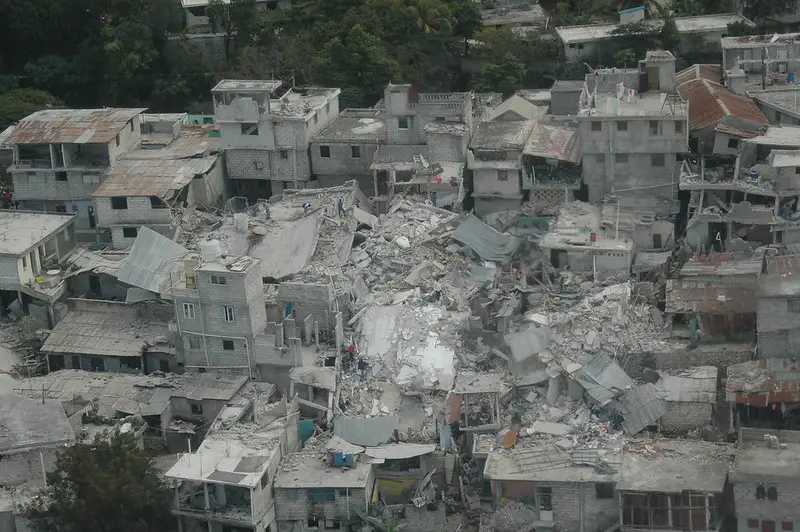
Chapter 1 – Although there is a small account of Chika Jeune’s childhood, we are aware that it was marked by an earthquake and calamity.
On the 9th of January, 2010, Chika Jeune was born in Haiti, in a two-room cinder-block house, beside a breadfruit tree. No doctor was there, only a midwife called Albert. It was a healthy, normal birth.
Reselia was Chika’s mother. Reselia was the daughter of a yam farmer in the seaport Aux Cayes, she was a tall, powerful woman with a wide face and stern appearance. She enjoyed reading and eating fish. In order for her to make money, she sold trinkets on the street.
When she was a bit older, she came across a man known as Fedner Jeune, and they ran away. Shortly, they gave birth to two daughters. Afterward, they gave birth to another child, who they called Medjerda. A glad, chubby baby, everyone referred to her as “Chika” as a word of endearment. It sang. It became a name that people knew the small girl by.
Only three days after Chika was given birth to, an earthquake tore apart Haiti. Chika was on her mother’s chest seeping when the ground started to shake and groan. The entire house and its foundations shook as if a great fight was happening in the bowels of the earth. Afterward, with escalating violence, the tremors removed the roof. The house cracked open just like a walnut, making the mother and her baby exposed to the heavens.
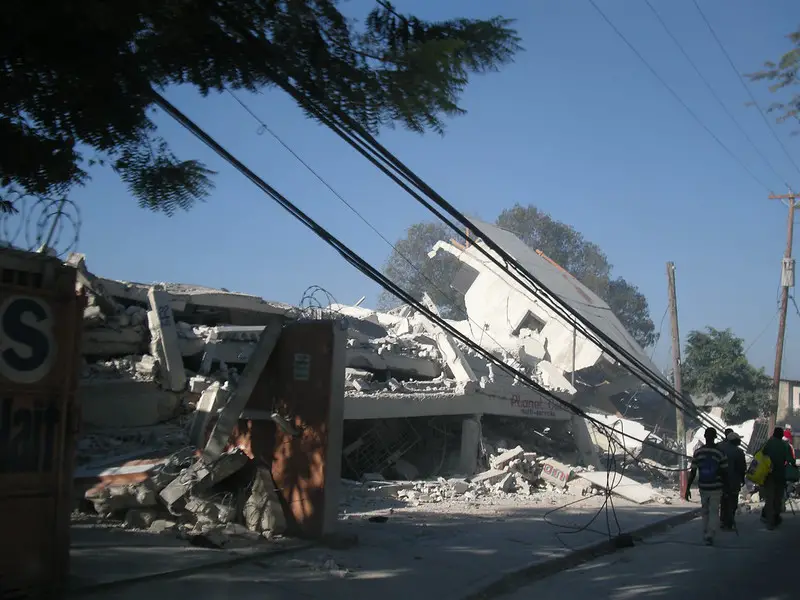
People around them ran, and fell, and cried in fear and pain. Offices fell down. Buildings were destroyed. Trees lay on their sides, crushed. Pigs and goats went to hide where they could. The bodies of humans were accumulated under the grey wreckage. Ultimately, the death rate would increase to the hundreds of thousands – further people died in less than one minute than in the entire Gulf War and American Revolution combined. Also, in this midst of all this pandemonium, a mother and her child were lay under the open sky.
Immediately after this, in the long repercussion of the earthquake, Chika’s mother gave birth to another child. A boy this time. But, unfortunately, she died during childbirth. For some time, Chika lived with Herzulia, her mother’s friend, instead of staying with her father. Then, while still a toddler, she was noticed taking dirty sheets up the high risky steps of Herzulia’s house, and a neighbor recommended that she should be taken to a close orphanage.
That was where, at that Port-au-Prince orphanage, that she got into the life of Mitch Albom.
Chapter 2 – Mitch Albom went to Haiti after the earthquake happened and took control of the orphanage in Port-au-Prince.
The earthquake that happened on the 12th of January 2010 had crushed a great swathe of Haiti. Immediately after, Mitch Albom, the bestselling writer who hosted a radio show in Detroit, hosted a local pastor named John Hearn Jr. Hearn was concerned that an orphanage in Port-au-Prince that he was related to had been ruined.
After listening to the pastor’s disturbing stories about children buried under the rubble, Mitch Albom was really touched that he said he would go to Haiti and try to assist in any way he could.
He left Michigan when it was snowing, he went to the sun-baked runway in Port-au-Prince airport five hours after. What he discovered surprised him. The entire country looked to be in shocked silence. Various streets of buildings had been crushed, changed to grey dust and wreckage as if they’d gone through a huge blender. Cars had been damaged like tin cans. Women hovered over decay fruit and vegetables, while children lined up to drink from oily-looking street puddles. People walked like ghosts through their old streets. And Mitch observed that the entire people he met were outdoors. No one risked staying beneath a roof in case it fell.
Although, amidst this whole wreckage, the Port-au-Prince orphanage had endured, extraordinarily uninjured. But, it was flooded with desperate survivors, beyond what it could feed or house. Both children and adults were staying in temporary tents on its grounds. When Mitch got there with packs of bottled water, aspirins, cans of Coca-Cola and wet wipes, he was furiously surrounded by a sea of hands. Starving and hungry people surrounded him.
Surprised by the scene and baking in the heat, Mitch exhaled deeply and felt the absolute anxiety of the nation pass through him. He allowed his arms to drop by his sides. Then, as he did that, he could felt two small hands, on both sides, slip into his. He gazed down to notice a thin boy and girl. They smiled at him and directed him forward. He understood, at that point, that he was going into their world, and that it would devour him for some a while.

He couldn’t basically allow people, particularly not children, to suffer like that. He assisted them to construct toilets, a laundry area, a dining room, showers, and a kitchen, for the orphanage. He assisted the, paint the dirty walls with colors that are bright. Eventually, he got permission from the pastor if he could manage the orphanage. The pastor accepted.
Chapter 3 – Chika, who was at the orphanage then, started to display disturbing signs of ill-health.
Mitch grew particularly fond of one bold small girl at the orphanage named “Chika” Jeune. She was bossy, usually instructing the other children just a drill sergeant, saying to them who should go first in relay races or the type doll they could play with. She had a bold voice and a stubborn streak
Immediately after taking charge of the orphanage, Mitch got a call from its attendant, known as Mr. Alain as fondly called by children.
Something was wrong with Chika. Her face had begun to droop and she had started walking unevenly. Mr. Alain gave her eye-drops; however, Mitch realized that something more severe was happening. He requested that they look for a neurologist – no easy feat in earthquake-shattered Haiti. When they got a neurologist, they paid $750 for an MRI scan. They made small Chika drink a sweet syrup that made her sleep, then she was put inside a large cylinder.
She had a mass on her brain. Alarmingly, in this basic clinic in Haiti, there wasn’t anything anyone could do about what was going on with her.
Mitch immediately chose to take Chika to the United States to go through treatment. She would stay with him as well as his wife, Janice.
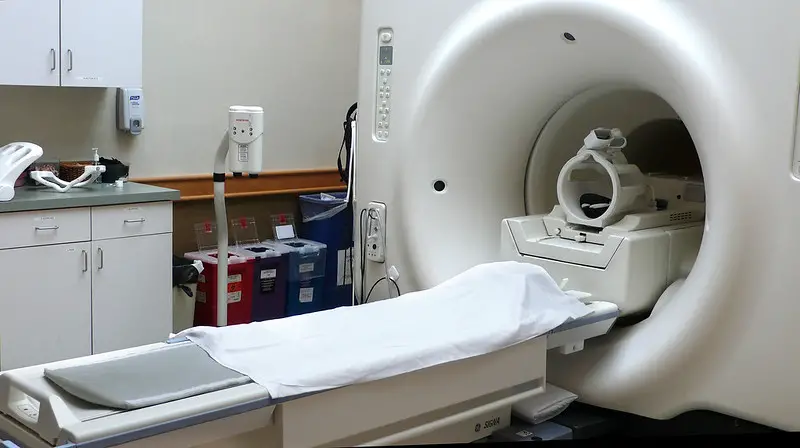
Chika’s first night in the United States was a thing Mitch would keep in mind for a long period. A lot was new. Chika had never for once experienced hot water come out of a tap before, and she removed her hand when she felt the heat. Outside the house, there were houses with neat yards, highways, traffic lights, and televisions flashing in various rooms.
Mitch and Janice made her feel as welcome as they could and assumed she would just live with them for a few months while she got treatment. She was taken to Mott Children’s hospital in Ann Arbor for further scans. The doctors discovered a brain tumor. By a vote of five against three, they chose to attempt to remove it. A few days later, Chika went through brain surgery, while both Mitch and Janice waited anxiously. When the surgeons came, they told them that it was just partially successful, and some tumor was left behind.
Mitch and Janice were both positive that it could be successfully handled. And they were glad for the small girl to live with them for how long it would take. They were in their fifties, and they didn’t have a child. Janice had always wanted children; however, they had left it really late. This would turn out to be a new experience.
Days went on. Then the bad news came. Her tumor was a Grade 4 cancer, and she had a zero long-term survival rate.
Chapter 4 – Although she was terminally sick, Chika displayed to Mitch how to use time effectively.
Mitch Albom had turned into a world-famous person for writing a book titled Tuesdays with Morrie. This story was about his favorite professor who’d been diagnosed with a terminal sickness. The story was an account of the Tuesdays that Mitch used with Morrie while he was sick and the deep wisdom that he passed on.
When Chika got to stay with him and Janice, he would learn similar lessons.
During their first-ever morning with her, she woke up early, during the times that Mitch normally wrote in his study. She went downstairs and requested Mitch for breakfast. She was extremely hungry. Mitch prepared an omelet and he sat with her while ate. He had never seen anybody take their time with a meal just like Chika did with hers. She chewed a mouthful. Yawned. Looked slowly around the room. She used one hour to finish eating. He immediately realizes that she did every other thing like that– taking time to pick a pair of socks or a jumper.
Mitch understood now that his time would not be his own, and that the former habits he and Janice had gotten used to were set to be interrupted. Therefore, they slowed to her rate and became vigilant to the world in a manner they’d nearly forgotten. They started to enjoy spending time as Chika did– slowly.
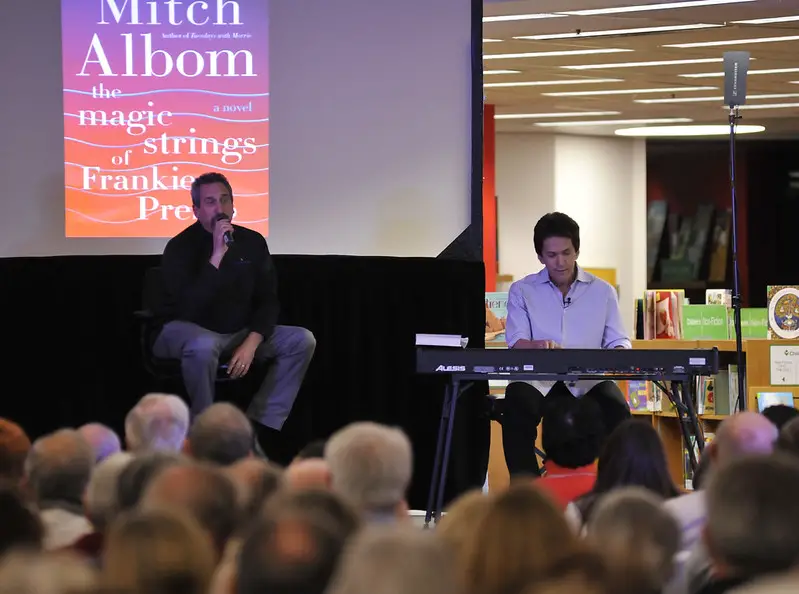
A particular event reminded Mitch of his Tuesdays with Morrie. Chika would usually go to the back window in their house and she would sit on the floor, only to observe the outside world. She would sit there for a while in silent rapture as she examined everything in small detail – the birds, the sky, trees and the grass moving in the wind.
Likewise, Mitch’s ill professor, Morrie, had pointed to a window in the room where he used the end of his life. He said to Mitch that he loved loving out of that window more than Mitch ever could since that was just his only view of the world, which had shut around him in his illness. According to Mitch, it was only a window of glass. But to Morrie and Chika, those windows opened onto wonder.
As Chika interrupted more and more onto his old habit, and life slowed down, Mitch pondered that the most valuable thing you can offer is your time. When you do that without thinking – just as he did with Chika – you give it with love.
Chapter 5 – Mitch got to view the world newly through Chika’s eyes.
As Chika slowed down Mitch and Janice’s world, Chika also started to make them view things newly. A little tired, as a lot of people are in their middle age, this was an actual gift.
Just like a lot of children, one of Chika’s best things was watching Disney films. Before any of them starts, there is the popular animation of Sleeping Beauty’s Castle. At a point, Chika asked if it was an actual castle. Mitch and Janice responded by saying it was and that they would go and view it one day. One night, after putting her to bed, they saw how her hair had begun to fall out in patches as the chemotherapy started to workThey decided that they need to go to Disneyland right away.
When they got to the theme park, instead of looking captivated the entire huge rides towering over her – Thunder Mountain and the Astro Orbiter and, yes, Sleeping Beauty’s Castle – she watched a small pond out in which a grey duck had swayed onto the route. “Look, a duck!” she screamed, and went after it.

Amid this whole fantastical and cartoonish scene, she had chosen a marvel of every day – marvels that Mitch had long since failed to realize. From then he started to view things, such as that little duck, with new examination and attention.
Chika aroused a thing in Mitch that other children –nephews and nieces – hadn’t been able to. He’d been told to “Look!” several times at things they’d seen and wanted him to see as well. Certainly, he realized that “Look!” was one of the most significant terms for a child. However, he understood that now he was viewing through Chika’s eyes as a parent, it was different, more critical.
She made him see frogs hiding in weeds, baby ducks running, and the wind raising a leaf that she nearly took. He started to see wonders everywhere, just like a poet observing the world before writing a verse.
The whole miracles occurred on a level that Mitch had forgotten for long. This was Chika’s level, which basically signified: far closer to the ground. There, they enclosed themselves in leaves, observed ants in the driveway, and rolled in the new snow. She reconnected Mitch with the world.
Chapter 6 – Taking care of Chika showed what fatherhood represented and reminded Mitch of his own father.
After she’d gone through numerous sessions of radiation treatment, Mitch took Chika to visit his own father, who was wheelchair-bound during that time and ill. Chika was shocked to discover that Mitch had a father even; however, she referred to him as Pop Pops and hugged him nevertheless.
Mitch’s father had been a thing of a paternal rock. A gentle, honorable man, and at just the age of 17 he’d had to take care of Mitch’s mother’s family after her father passed away. He’d prepared breakfast for everybody in the morning, behaved as a father-figure to Mitch’s uncle, his mother’s younger brother, and managed the household well. He took upon huge responsibility for someone really young; however, it fit him. He developed into the type of person that others came to seek, money, assistance or advice from.
One memory of his father stands out the most for Mitch. When he was about six years of age, he usually went swimming in the local lake with him. On one occasion, he drifted into deeper water and observed that some older children were coming toward him. One screamed “Let’s catch him!”, and Mitch swam anxiously back to shore, toward his father who was standing in the water. He took his father’s waist firmly. It was that sense of protection, as he held on to his dad’s waist, that Mitch would link with fatherhood.

It was something like that, in himself, that had made him cater to those Haitian children in the orphanage, and after, Chika. He had observed it when he looked at those little faces in Port-au-Prince. He had effectively become accountable for them. Every single child who stumbled and scratched their knee or any children with diarrhea became his worry and responsibility. He desired to be a place of protection for them, just like how his father had been for him.
This feeling deepened when he turned to Chika’s guardian. When he took Chika to the hospital and signed for her to do possibly life-threatening brain surgery, he felt that exact burden. One day, when he and Chika were walking, during her early stay in the US, she basically put her hand into his without asking. He was really touched beyond words. He felt more selfless, more self-sacrificing then than at any other point in his life. He felt, significantly, like a father.
Chapter 7 – One day, Chika came across her own real father and it aroused profound thought in Mitch.
After Chika received her treatment in the US, Mitch took Chika back to Haiti to see the orphanage numerous times. On one of these times, Mitch got to know that Chika’s father was still alive. Chika had not seen her father, Fedner Jeune, since the death of her mother’s death. As a matter of fact, Mitch had been told that he might also be dead. However, he was alive and sound, in a place known as Tabarre, forty minutes’ drive from the orphanage.
Therefore, remembering Chika’s diagnosis, Mitch took her to see him.
However, firstly, Mitch drove to Fedner’s house and presented himself. A short, strong man with a broad mustache and bloodshot eyes, he looked isolated and reserved. Mitch then said to him that he came because of Chika’s terminal illness and questioned if he would wish to see her. Also, he told him what they were doing, even then, to combat cancer. He basically replied with, “Whatever you consider is best, do that.” More painfully, Mitch also inquired if it was significant for Chika to be buried in Haiti. He responded by saying, “It doesn’t mean. Whatever you think.”
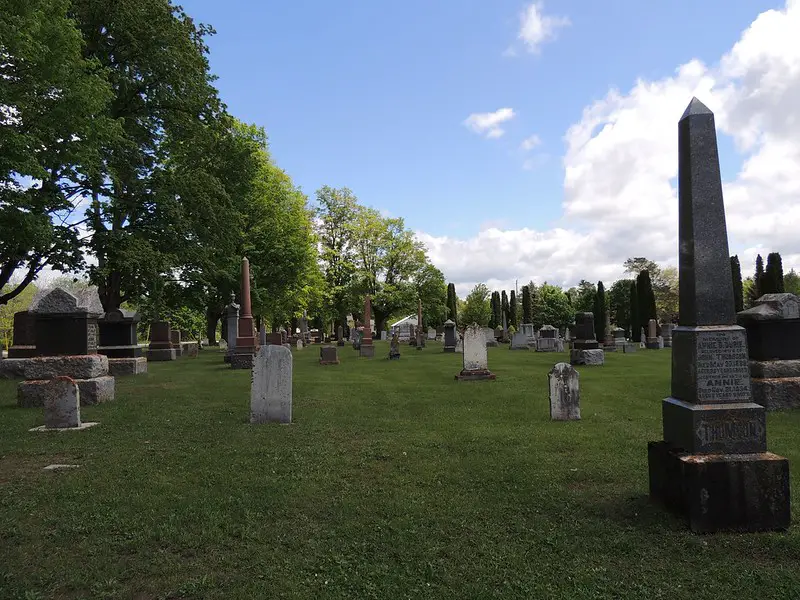
When Mitch requested Chika’s father to come to the orphanage, he sat with Chika, his daughter, for some hours while she played with a doll. When Mitch looked at them, they appeared to be sitting still, with Fedner looking blankly into the yard.
This experience, disturbing in a lot of ways, aroused deep reflection in Mitch. Also, being struck by Fedner’s apathy, he felt the conflict and agony of a lot of foster parents.
He was afraid of the relationship that Fedner might’ve had with Chika, as her real father. He questioned himself if he would’ve been able to give her to Fedner if he had requested for her back. At that point, Chika had stayed with Mitch and Janice for almost two years, and in his heart, he had developed into a father.
However, anything the paperwork stated, he thought, the absence of blood-connections hadn’t hindered Chika from having a deep sense of belonging when she was staying with Mitch and Janice.
He recalls something immediately after this encounter with Fedner. One night, as she was falling asleep, Chika questioned Mitch what he was going to do if she fell asleep. “I’ll read and ponder on how much I love you,” he answered. Hardly awake, Chika mumbled, “That’s what I’ll do, as well.” Parent, foster parent – none matters. Chika was part of their family.
Chapter 8 – Against awful likelihoods, Mitch, Janice, and Chika battled with cancer until the end.
Chika wrestled courageously and her cancer had been controlled. Her first diagnosis had just provided her four months to live; still, she’d been with Mitch and Janice for 19. Due to her radiation treatment, it was possible for her to live in relative comfort for a while. However, then, quite fast, she started to worsen. Her motor ability got worse and she became unsteady on her feet.
In their desperation, Mitch and Janice checked the internet for other treatments. Anything to cure her. They discovered one likely choice in Cologne, Germany. They traveled at the first chance and got a small apartment close to the clinic. The treatment entailed making an immune response from Chika’s own cells. It was their final opportunity.
At that point, Chika depended on a wheelchair, which, considering the energy and nosiness of this small girl, was particularly difficult for the couple to tolerate. Although Chika was striving, Mitch remembers that time affectionately. Mitch would push her around Cologne, which was crusty and cool with huge blue skies. He took her to the Cathedral of Saint Peter, whose twin spires towered above them. As they got close to it, she said “Oh no.” Mitch asked her if something was wrong. “Oh no, I have never such before,” she responded.
On days like this, as he pushed Chika around the beautiful medieval city, he thought about the implausibility of the entire situation. Here was this small girl from Haiti, eating a pretzel from her wheelchair, who’d never have been to this faraway country if not for her sickness. He thought about how he’d been given a beautiful daughter in such situations.
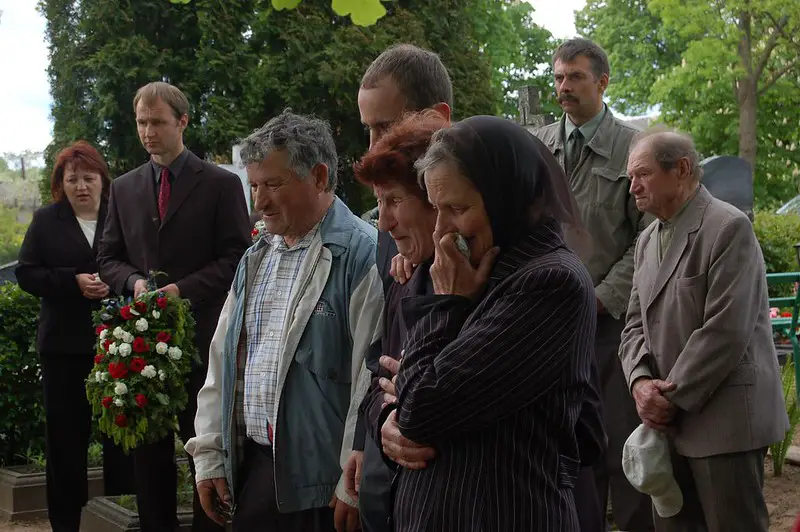
However, plausible or not, everything would soon come to a tragic end. Mitch, Chika, and Janice had one last Christmas together, with only the three of them back in Michigan. Although, Chika, was really weak, gradually opened her presents, inquiring “Wha issit?” of each item. For those short, valuable instants, they were a family.
On the 7th of April 2017, Chika Jeune died peacefully, with Mitch and Janice next to her, saying how much they loved her, as photographs of happier times – Chika putting on swimming goggles, Chika licking ice cream – played on a big, silent screen in the hospital room.
Finding Chika: A Little Girl, an Earthquake, and the Making of a Family by Mitch Albom Book Review
Chika Jeune was given birth to in 2010 amidst disaster in Haiti. Losing her mother at a really tender age, she was given immediately into the care of the Port-au-Prince orphanage. Here she became under the guardianship of Mitch Albom, who had taken charge of the orphanage. Sadly, at the age of three years, she was diagnosed with a brain tumor. She relocated to the US to stay with Mitch and his wife Janice while she went through treatment. There, this small girl taught the couple important lessons about life and themselves. She reminded them to watch cautiously at the world that surrounds them and to value each moment they had together.
Download Pdf
https://goodbooksummary.s3.us-east-2.amazonaws.com/Finding+Chika+by+Mitch+Albom+Book+Summary.pdf
Download Epub
https://goodbooksummary.s3.us-east-2.amazonaws.com/Finding+Chika+by+Mitch+Albom+Book+Summary.epub
